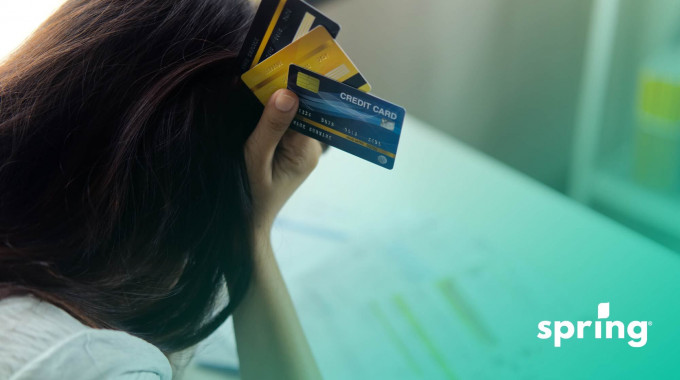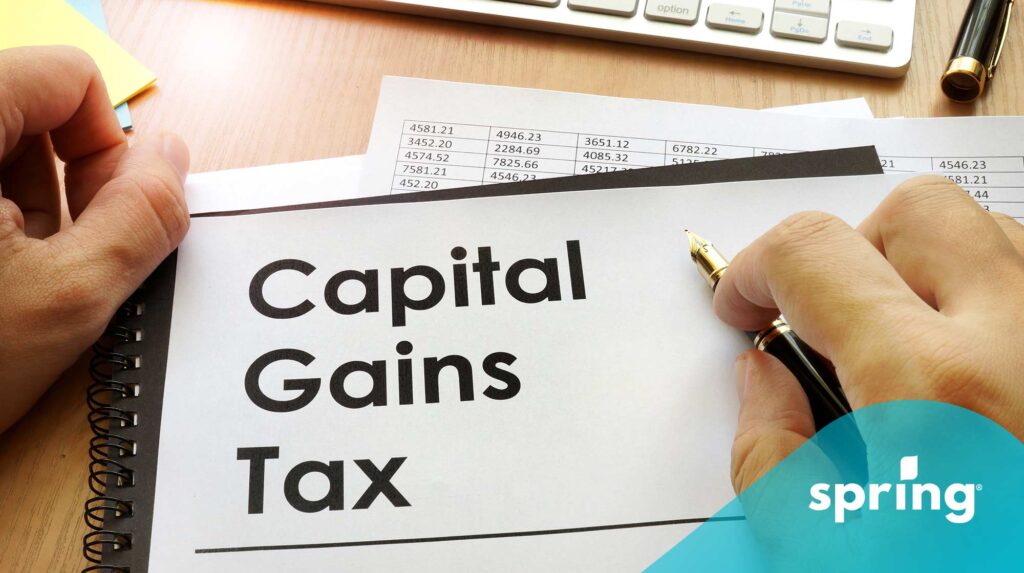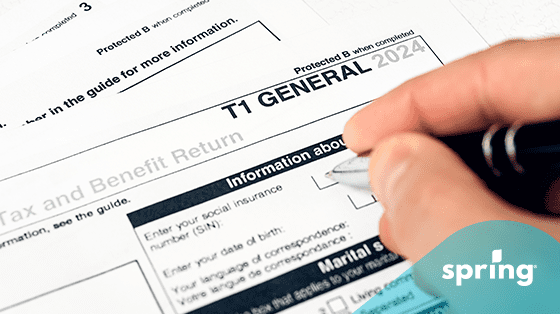Not only does this reduce your debt payments and interest rates, but it controls the amount of debt that you have and how quickly you’re able to pay it off.
How Consolidating Your Debt Works
If you are looking to take control over your debt and obtain some debt relief, then you may have heard of debt consolidation; but do you know how debt consolidation works? Well, debt consolidation is when you take your debt and compile it all into one loan.
The reason this is done is that it reduces your payments into one, and compiles it all into one interest rate. This not only makes it cheaper, but it also makes it simpler to pay off, allowing you to become debt-free faster.
If you’re considering consolidating debt, there are a few different ways to go about it. The most common way people choose to do this is by taking out a personal loan. They then use this loan to pay off all of their other debts, reducing their debt to one monthly payment.
Some other borrowing solutions that people choose to consolidate their debt are:
- By using balance transfer credit cards
- Borrowing and withdrawing from a retirement account
- Taking out a second mortgage or refinancing
- Taking out a loan against your personal assets
However you choose to do it, though, make sure you are actually going to save money. If it’s going to end up costing you more money, then it probably isn’t the right method for you. The best way for you to consolidate will ultimately depend on what types of debts you’re consolidating and what you can afford to put toward your monthly payments.
Consolidating Credit Card Debt
While there are plenty of different kinds of debt out there that you can consolidate, the most common kind is credit card debt. This is because having too much debt on your credit cards can be very difficult to pay off. The main reason for this is how credit card interest works.
When you use a credit card, there is usually a grace period before the transaction shows up on your credit card bills when you don’t have to pay any interest. If you don’t pay it off in that period of time, then that’s when you start paying interest. As soon as that interest starts it’s calculated differently than other debts. Not only is credit card interest compound interest, it compounds daily, which is much more often than other forms of lending.
This results in high interest accumulations and it means that you need to make larger frequent payments in order to be able to combat your balance. If you convert this into a consolidation loan, you could pay this debt sooner by reducing the interest that you’re paying. While minimum payments barely make a dent with credit cards, they do with personal loans.
Often, for those with high credit card balances and other high-interest debts, it can be difficult to make the large, frequent payments needed in order to pay them off. This is especially the case if they have more than one large credit card balance.
Taking out a debt consolidation loan allows them to pay off their credit cards and turn their payments into one low, affordable monthly payment. If you choose to keep your credit card, though, after you have paid it off, you will still have to pay the annual fee whether you use it or not.
Consolidating Your Debt Online
Searching for a loan to consolidate debt can be tricky. That said, did you know that you can actually get one online. Many lenders are now offering loans online, without ever having to step foot into a branch. That doesn’t mean that you aren’t able to speak with an advisor or representative, but you no longer have to leave your home to take care of your debt.
Personal Loans and Consolidating
When it comes to consolidating your debt, keep in mind a debt consolidation loan isn’t a specific type of loan, it’s just the reason for the loan. This means that any personal loan can be used in order to consolidate your debt. The part you need to pay attention to is the loan amount as well as the interest rate. Some places will offer lower interest rates than others and with some lenders, you may qualify for a higher loan amount.
Keep in mind though, that while personal loans are generally the cheapest form of credit, you do typically have to pay origination fees when you complete your loan application or once you’re approved. Typically these are no more than $100, but they should be factored into your overall amount.
Where Should You Get a Debt Consolidation Loan?
When applying for a personal loan, you have a couple of different options. The two most common are traditional lending institutions and private lenders. Which one you decide to go with really just depends on your current financial situation, your credit score and how much money you’re looking for.
Traditional Lenders: Banks and Credit Unions
The most thought of place when looking for a personal loan is your daily financial institution. This is because banks and credit unions are known for having lower interest rates. Also, many financial institutions offer lower rates for their customers who have multiple products with them. Your lender also knows you quite well so your approval process might be more likely since they vouch for you personally. There are some downsides to getting a personal loan this way though.
Most traditional lenders will require an in person visit before you’re granted a loan. This can be time consuming and often results in long wait times before receiving your funds. That said, even if you aren’t required to go to the bank, there’s still at least a wait time of one week.
Private Lenders
There are a few different reasons that people choose to go with private online lenders. The main one is that they receive the funds that they’re looking for faster. A lot of online lenders now can get you the money the same day you apply or, within 24-48 hours. This is a great feature since usually, if you’re looking for a long, you need it fairly quickly.
The biggest concern with online personal loan lenders is the interest rates that they offer. They often have much higher rates than the traditional lenders offer. Many of these lenders, though, are starting to offer more competitive rates that are the same as or only slightly higher than the banks. For many people, the pros of getting their funds sooner outweigh the cost, especially if they’re able to pay off the loan in full, early with no hidden fees or penalties.
Consolidating Your Debt with Bad Credit
If you’re struggling with your debt load but you have a low credit score, it’s still not impossible to get yourself back on track. How you choose to go about it, though, ultimately depends on what type of debts you’re looking to consolidate and how much money you’re looking to borrow. The lower your credit score is, the more difficult it becomes to get a large personal loan.
With all that in mind, though, there are still a few different ways you can tackle your debt. A traditional lender may help you get a debt consolidation loan with poor credit, especially if all of your debt is with them. You may be wondering why they would do this? Well, in short, they want their money. If consolidating all of your debt into a single monthly payment guarantees that you’ll pay them back, they’re more likely to give you the loan.
Another alternative is an online lender. If you have more abstract debts like payday loans, multiple credit cards and loans and lines of credit, then this may be the way to go. They often have more leniency on credit scores than traditional lenders and offer a more flexible application process.
Once you’re approved for the loan, it will be up to you to pay off all of your debts in full then make your monthly payments on the new loan. While going with an online lender may result in high interest rates, it could still be much cheaper than paying the interest on payday loans and credit cards. An added bonus is that it’ll help to improve your credit score as well.
How Consolidation Affects Your Credit Score
How debt consolidation impacts your credit score really just depends on your overall financial situation, if you have multiple bills and multiple debts, as well as the total amount of your outstanding debts. We can give you some examples though of how it can impact it, positively and negatively.
Consolidating Credit Cards
The most common way that debt consolidation affects your credit score is when you consolidate your credit cards. This is because maxing out your credit limit can hurt your credit score over time.
Once you pay off that balance, then you will notice your credit score increase due to the fact that your balance is now well under the 30% recommended threshold. However, if you do cancel the credit card, then you may notice a small hit to your credit score as well. The positive benefits on your credit score only are there if you keep the credit card active.
Consolidating Payday Loans
When it comes to payday loans, there’s no impact on your credit score. That’s because payday loan companies don’t report to the credit bureaus, unless you’re sent to collections. That said though, payday loan interest rates are astronomically high and paying them back can become very difficult, very quickly.
This is when debt consolidation should be considered in order to help you get out of that cycle, increase your credit by getting a personal loan, and avoid credit damage by taking control before you have to deal with collections.
Consolidating Personal Loans
There are a few instances where you may consider consolidating your personal loans, usually it’s done because you have high interest loans and you’re able to get a lower interest rate which can help you pay off the loan faster. While this doesn’t necessarily make any major changes to your credit score. It will show that you have a positive closed tradeline as well as a new positive tradeline adding more positive history to your credit report.
When getting a debt consolidation loan for your personal loans, you also need to pay attention to the loan balances you have, your new loan balance, as well as the loan term. These things will all affect how much you need to borrow and how much you will end up paying back.
Consolidation Line of Credits
Another really popular form of credit that people tend to pay off using debt consolidation loans are line of credits. These are similar to credit cards since they are revolving credit, but they have lower interest rates. That said though, when their balance becomes too close to your overall credit limit, a line of credit can start to hurt your credit score.
A personal loan on the other hand, will show as a positive tradeline no matter what your balance is. Plus, their interest rates can be higher than personal loans so changing that over could also save you some money, along with improving your credit score.
Can Debt Consolidation Hurt Your Credit Score?
Yes, in some cases debt consolidation loans hurt your credit score. That said, the impact is often very minimal and temporary. This is because in order to get a debt consolidation loan you will need to get a credit check done.
Everytime a hard credit check is done, this then takes a hit to your credit score and it drops 10 to 15 points. As long as you stay in good standing on your loan, your credit score will improve and the impact will disappear quite quickly.
What will hurt your credit score the most when it comes to debt consolidation loans is missing payments, or making late payments. These things will drop your credit score and can stay on your credit report for up to 7 years.
This impact will be even worse if you miss even more payments and end up having to go to collections. Ultimately, as long as you stay in good standing on your loan and make all of your payments on time, your credit score will improve.
Should You Consolidate Your Debt?
Whether or not you should consolidate your debt, and how you do so, is up to you. It really just depends on what will cost you the least amount of money and if your current debt loan is manageable to be paid with your current debt management plan. If not, a debt consolidation loan could be the best solution in order to help you conquer your debt faster, however, there are other debt consolidation options available as well.
Before you commit to any consolidation loans it’s important that you do your research. You want to verify that it’s going to save you money and not cost you more in the long run. This is often the case when it comes to credit cards and line of credits, but not always with personal loans or car loans.
It may make more sense to leave those as they are and just consolidate the high interest debt. The most important thing to look at in order to figure out how much it will cost you in the long run, is the interest rate. Even if you are now only making one single payment, be sure to make sure it will save you money.
Alternatives to Help Conquer Your Debt
If a consolidation loan isn’t the best option for you and you don’t quite have the cash flow to do so, then there are some alternatives that you can access instead. While a debt consolidation loan is more ideal, these aren’t terrible options and will allow you to take control of your financial situation.
If the debt is too much then a good place to start is by talking to a debt settlement specialist. They will be able to talk to your creditors and negotiate a lower payment or have the debt written off. The same thing would happen if you chose to see a credit counsellor. Keep in mind that your credit score may take a hit, and it will stay on your credit report for 6 to 7 years.
If these alternatives don’t work, the last option would be bankruptcy. While bankruptcy isn’t ideal, it can help to reset your finances. This means that you would essentially be starting from scratch. That said, you will take a significant hit to your credit score and it will stay on your credit report for 6 to 7 years.
Overview
Living with a mountain of debt can be very stressful. It doesn’t have to be though. No matter what your credit score is how much you owe, there are plenty of options for you to take back control of your finances. You could take out a personal loan, a home equity loan or line of credit, or even do a credit card balance transfer to save on interest.
If none of these work, then you also have the option to see a credit counselor, come up with a debt management program or even file bankruptcy if you have to. No matter what you choose to do, your debt doesn’t have to stress you out.









